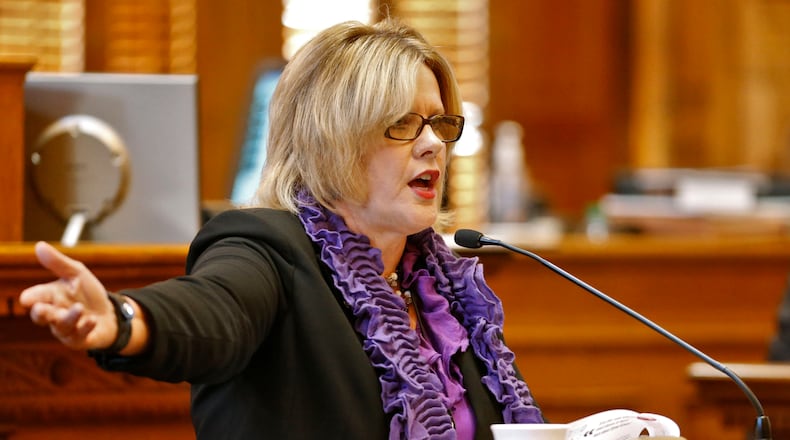The chairwomen of the state House and Senate health committees joined Tuesday to announce legislation aimed at providing basic dental care to hundreds of thousands of children and elderly Georgians who have limited access to a dentist.
House Health and Human Services Chairwoman Sharon Cooper, R-Marietta, and Senate Health and Human Services Chairwoman Renee Unterman, R-Buford, said the aim is to provide needed care to the state’s most vulnerable citizens, many of whom live in areas with few dentists.
“It should be a no-brainer to get this bill passed,” Unterman said.
But Cooper said the dentists’ lobby at the Capitol - traditionally a big donor to lawmakers - backed away from its initial support of similar legislation last year.
Under the legislation, dental hygienists would be allowed to do basic cleaning and preventive care at so-called “safety-net settings, ” qualified health centers, school-based health clinics and dental offices without a dentist present.
The work would have to be authorized by a dentist. Currently, Georgia law requires that a dentist actually be present in the facility for a hygienist to do such work.
Georgia Dental Association officials said earlier this year that they were concerned about the safety of patient. Supporters of the legislation say dentists may fear it will open the way for legislation allowing dental hygienists to open their own practices and do dental care outside the supervision of a dentist.
Nicoleta Serban, a Georgia Tech researcher, told state lawmakers earlier this year that more than 600,000 Georgia children with families on Medicaid do not live within what the state considers an acceptable distance to a dentist who accepts Medicaid patients.
Out of 4,044 dentists actively practicing in Georgia in 2012, about 22 percent accepted patients on Medicaid, the state-federal health care program for the poor and disabled. Georgia ranked 49th in the country in dentists per capita, she said.
Researchers say the state could save millions of dollars annually by delivering basic preventive dental care to children of Medicaid-eligible families who don't get services now.
About the Author
Keep Reading
The Latest
Featured




